In an exclusive interview with us on the occasion of Vietnamese Family Day on June 28, Phan Hieu shared interesting insights into his journey of building a loving family with his wife, Khanh Thi.
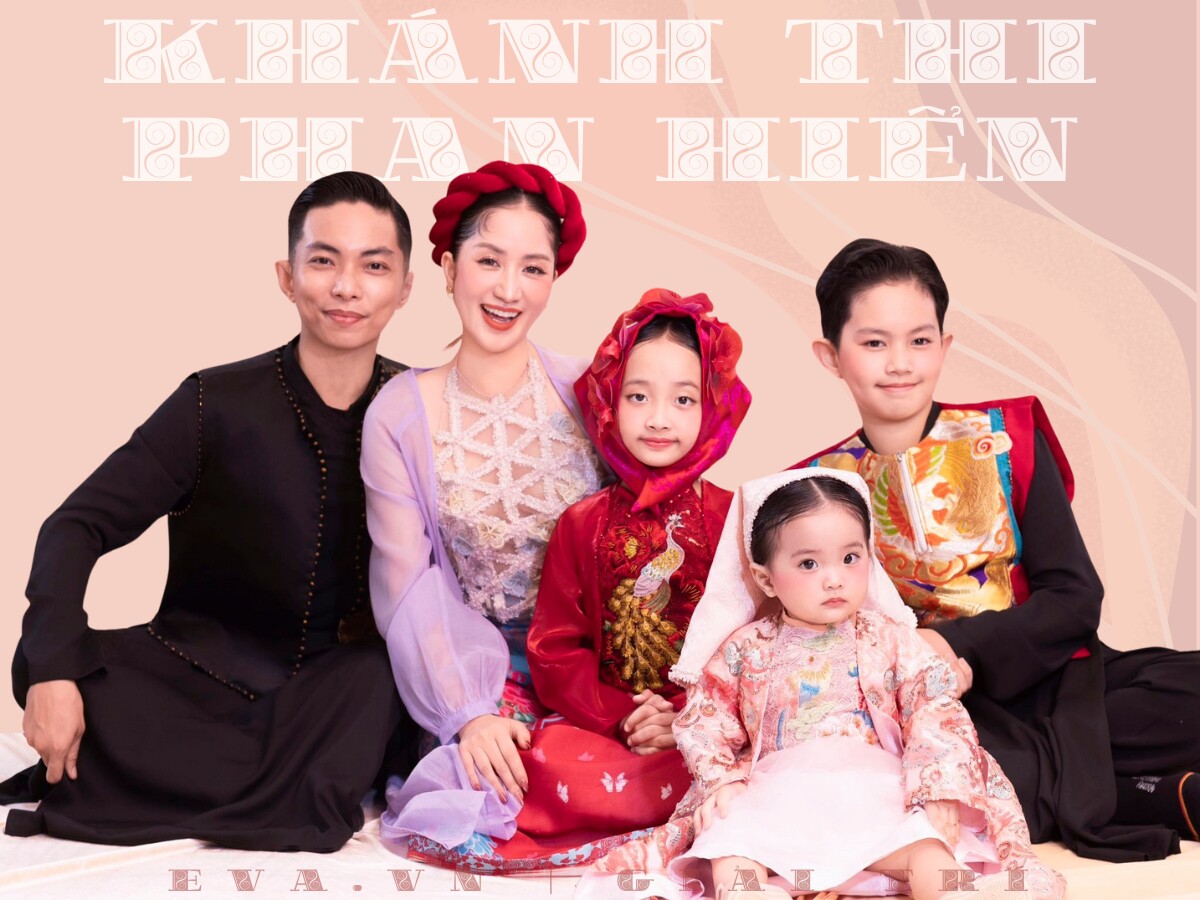
– How has your marriage changed since your wedding, Phan Hieu?
Since our wedding, my wife and I have both changed for the better. We’ve learned to set aside our egos and be more understanding of each other. Before marriage, even minor disagreements would turn into arguments, with both of us insisting we were right.
Now, we are more considerate and willing to compromise for the sake of our children and families. We rarely argue, and any disagreements are quickly resolved as we focus on the well-being and development of our family.
– What do you admire most about Khanh Thi and how has she contributed to your family life?
I deeply admire Thi’s ability to plan and organize, whether it’s her work or our family life. She’s excellent at building relationships and is very respectful and thoughtful towards my family.
Living with our extended family can be challenging, and Thi has skillfully navigated the dynamics, especially with the cultural differences as my family is from the South and she’s from the North. In my eyes, she’s the perfect partner, and I wouldn’t change a thing about her. Of course, no one is perfect, but at this moment, I have no desire to change anything about her.

– How has your life changed with the arrival of your third child?
With the birth of our third child, my wife and I have been busier than ever. We’re currently organizing an Asian championship event in Vietnam, with Thi taking on the organizational role while I compete as an athlete. I’m determined to maintain my position as the reigning champion in Southeast Asia. As a result, we barely have any free time for ourselves or our children.
Although we live under the same roof, our work often keeps us apart until the evening. It’s challenging to find time for each other and our children, but we’re fortunate to have the support of our parents and helpers.
We’re also grateful to have our company and dance studio in the same building, so I can easily take a break and pop downstairs to see my wife during the day.
WATCH: A glimpse into the happy family life of Phan Hieu and Khanh Thi.
– How do you balance your family life with your busy careers?
I think our children understand that their parents are often busy. We encourage them to be independent and equip them with the necessary skills to do things on their own. Thankfully, we also have the support of our parents and caregivers, especially during this busy period.
– What are your expectations for your son’s future in dancesport? Has he ever shared any feelings of pressure with you?
I always tell Kubi that his parents don’t expect him to follow in our footsteps. Right now, all three children are growing up in a vibrant and active environment, which is essential to me. I don’t want them to be shy, introverted, or afraid of interacting with others.
Dancing provides them with valuable soft skills that will benefit them in the future, regardless of their chosen career path. It’s not necessary for them to become professional athletes; they can explore any profession they desire.
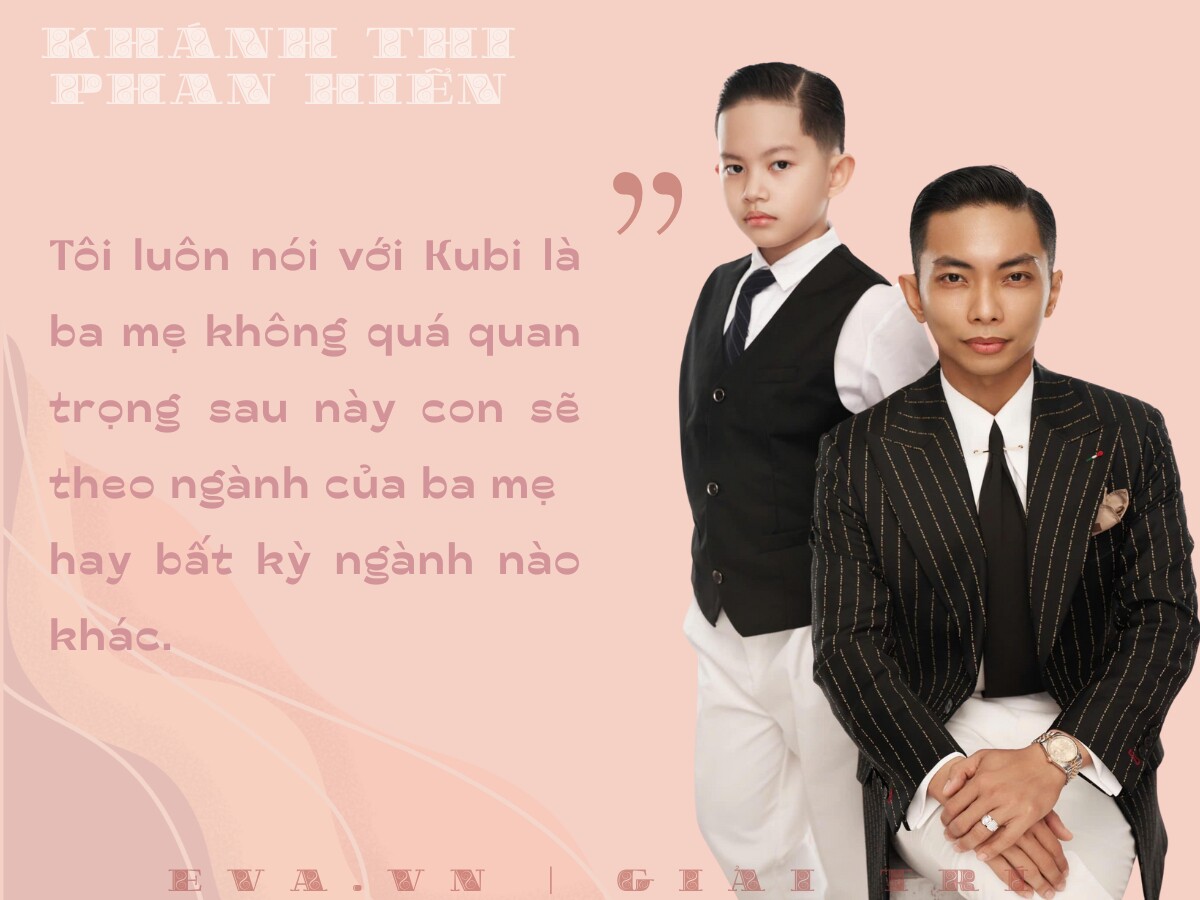
– Do you expect all three children, Kubi, Anna, and Lisa, to follow in your footsteps?
Kubi has inherited my talent for dancing, and if he chooses to pursue it in the future, my wife and I will fully support him. However, if he decides to explore other interests, I won’t force him to follow in my footsteps.
Anna, on the other hand, seems to have a knack for academics and organization, similar to her mother. I believe she may be inclined towards business or event management in the future.
As for Lisa, we’re focusing on her physical development and encouraging her love for dancing. She’s a bundle of energy and always eager to move and groove!
– How has Anna matured and taken on the role of big sister since Lisa’s birth?
Anna used to be shy, so we’ve been encouraging her to interact with more people and gain confidence. We’ve been gradually exposing her to the stage and helping her overcome any stage fright. While she may not be as outstanding as Kubi just yet, she’s made tremendous progress and is now more confident when speaking in front of an audience.
Anna is a caring and thoughtful child, always looking out for others, including her little sister, Lisa, and those around her. She often says things that sound beyond her years, and I believe she’s inherited her mother’s way with words.
Anna is capable of feeding Lisa and taking care of her for extended periods, something that Kubi can only manage for a few minutes before he wants to play.
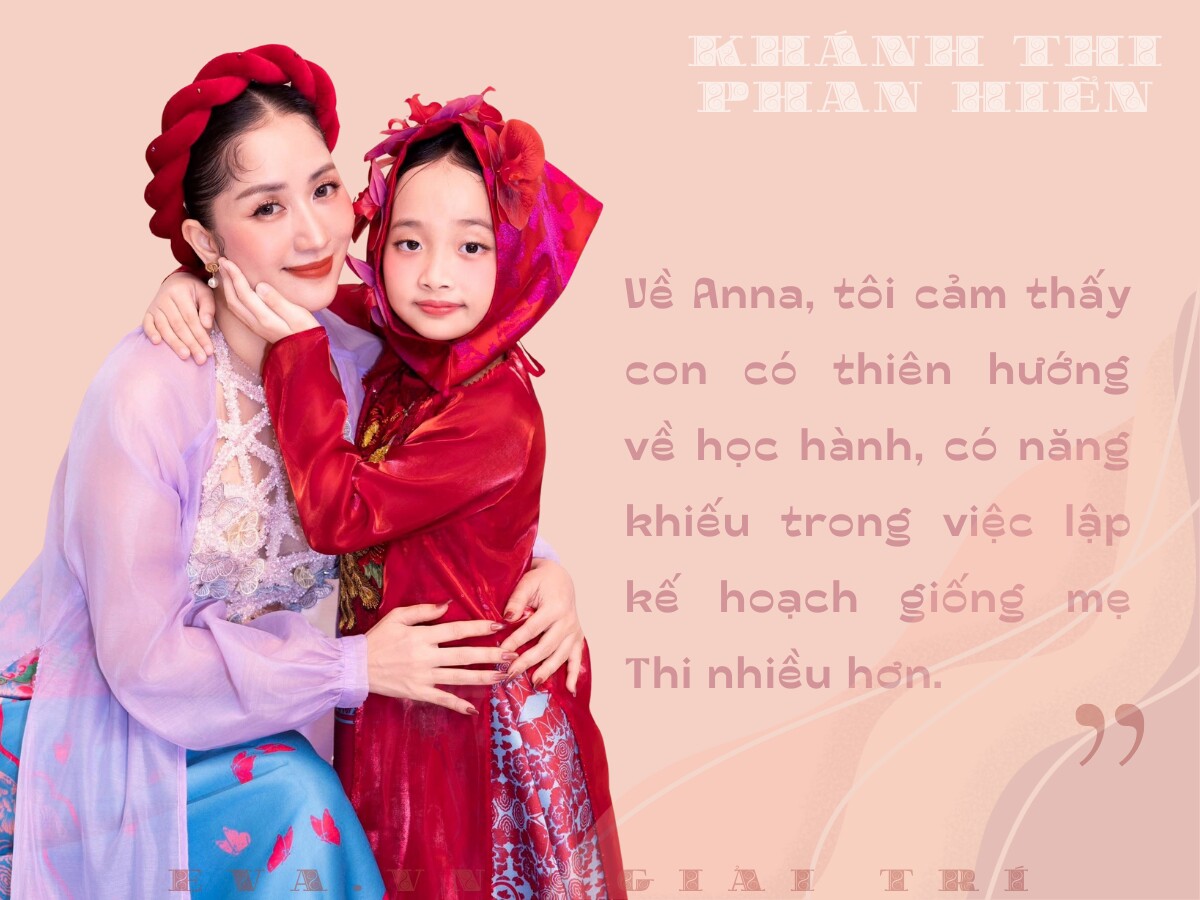
– What is Lisa like, and how do you feel about her popularity on social media?
Lisa has inherited her mother’s good looks and has a vibrant and energetic personality. She loves to dance and will keep moving as long as the music plays.
I’m thrilled that she’s gained a following on social media, and I attribute her visual appeal to Thi’s genes. I jokingly say that I gave Thi all my best features because I know I’m not as attractive as she is!
– Khanh Thi has expressed her desire to have a fourth child. Can you share your thoughts on this?
My wife and I view children as gifts, and we’re always open to the idea of having another one. Similar to our other children, we didn’t plan their arrivals, and we believe that these things should happen naturally.
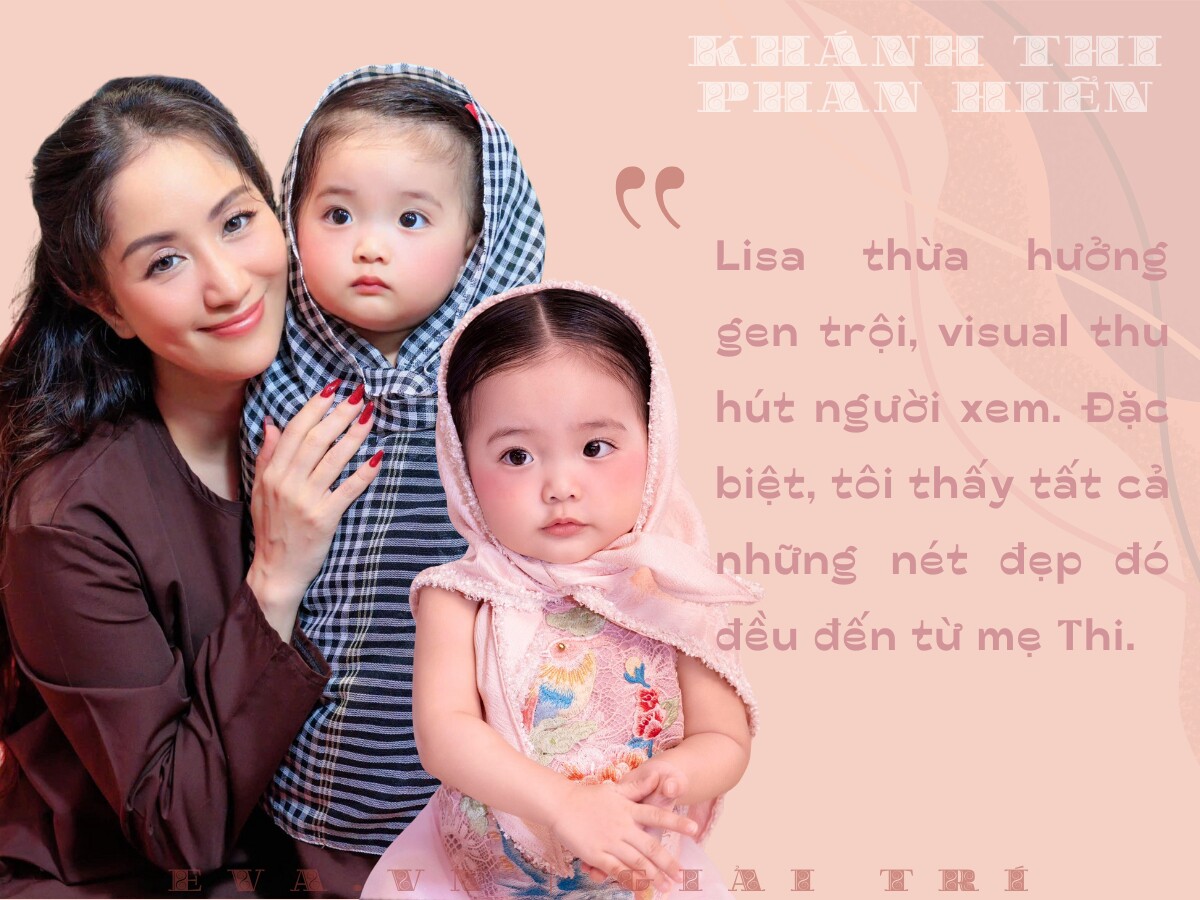
– With a large family, are you concerned about financial stability?
We are mindful of our financial responsibilities, especially as we want to be financially independent and not rely heavily on our parents or families. I work hard to provide for my family and ensure we can meet our daily expenses.
With Kubi starting secondary school soon, the costs will increase significantly. Additionally, we’re investing in his dance education by engaging foreign experts, which adds to our expenses. We also have our company to manage, so there are multiple financial considerations.
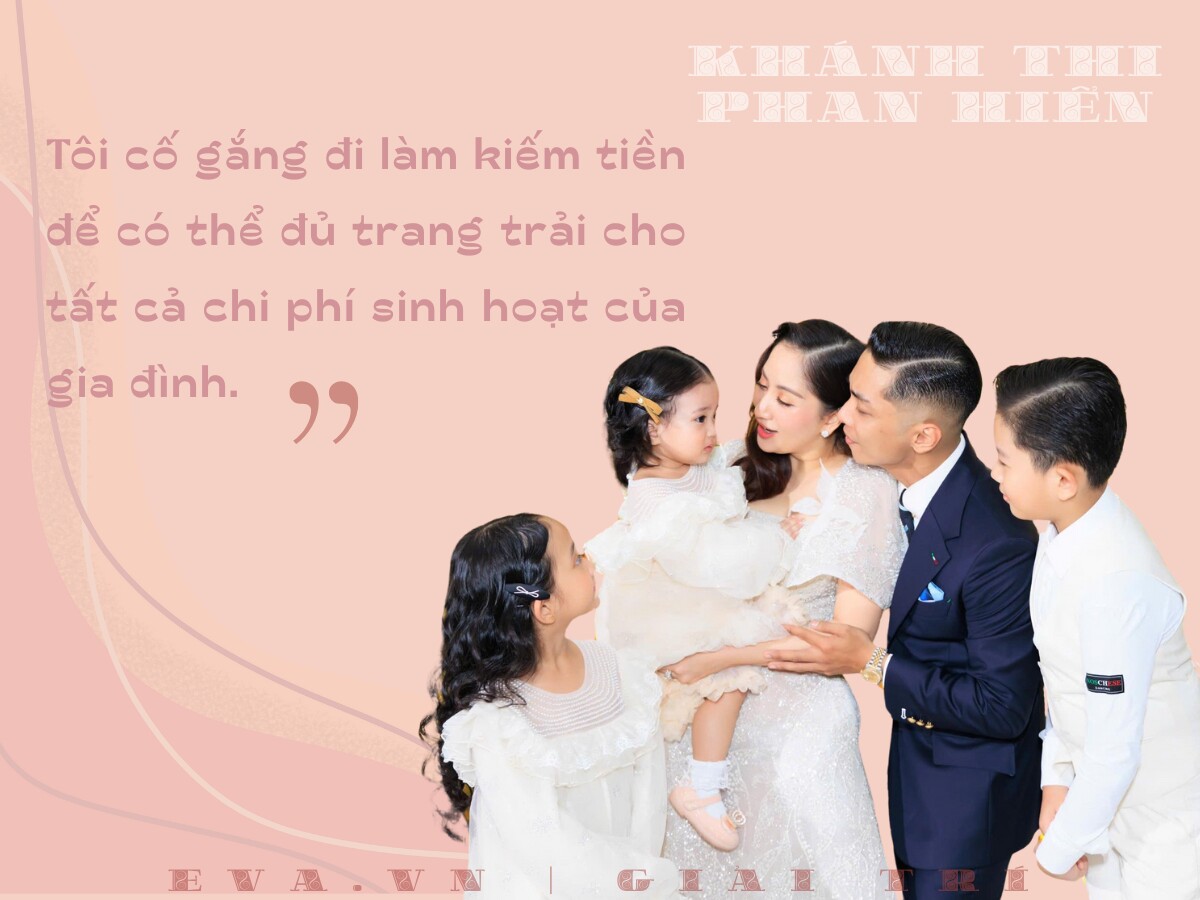
– Do you have any advice for couples building their families?
I’m no expert on love, but I can share what has worked for us. The key is effective communication and listening to each other. Set common goals centered around the well-being and development of your children and extended families. Avoid arguments and negative interactions in front of your children, as this can impact them negatively.
Thank you, Phan Hieu, for your insightful interview!





































